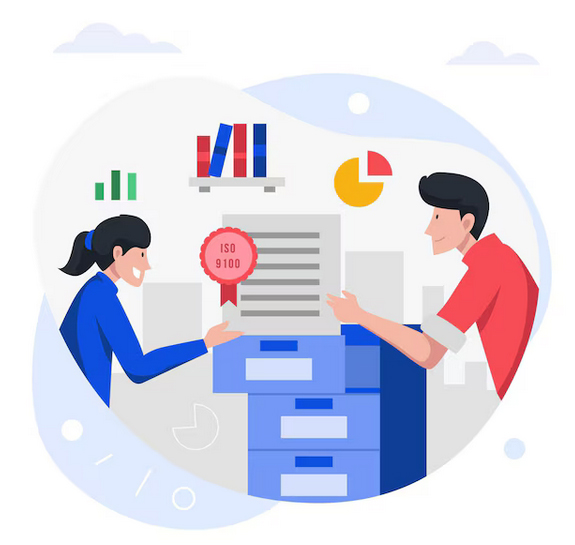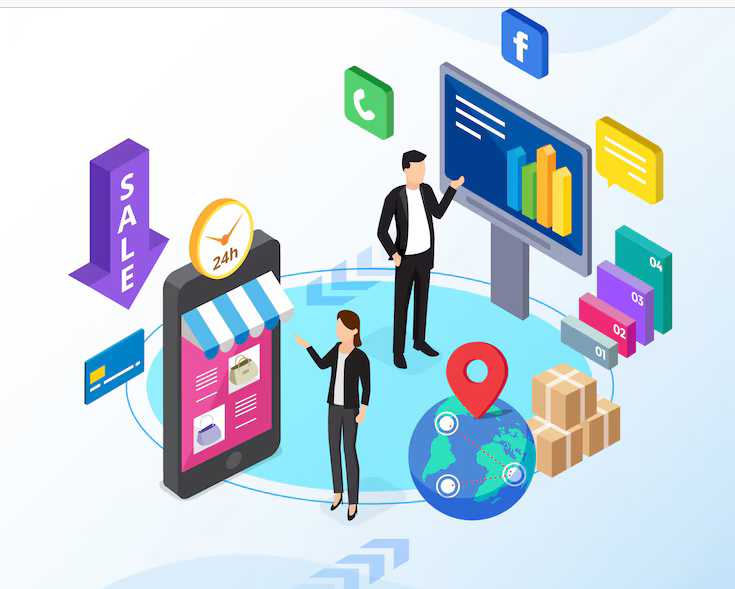Vendor Management Software: Top 5 Tools, Pros-Cons, And Cost Benefits
Do you ever feel like you're drowning in vendor emails, struggling to keep track of contracts, and wondering if you're getting the best deals? You're not alone. A recent study by LevMarkets found that 65% of businesses struggle with managing their vendor relationships effectively.
This is where vendor management software (VMS) comes to the rescue. But with so many VMS options on the market, choosing the right one can feel overwhelming.
Don't worry, we've got you covered! In this blog, we have covered the best vendor management software solutions, so that you can find the perfect fit for your business needs.

5 Best Vendor Management Software
The following are the top 5 best vendor management softwares of 2025:
1 Ekklavya's eAIMS
Eklavya’s eAIMS isn't just another VMS. It's a comprehensive platform designed to streamline your vendor lifecycle, from onboarding to performance evaluation.
Key Features:
End-to-End Vendor Management
Real-time analytics on vendor spends, ROI and performance.
Easy management of all documents at one place.
Integrated with AI, ML and other advanced technologies.
Monthly customized reports.
Data security compliance and risk management.
Pros:
User-friendly interface with minimal learning curve.
Advanced reporting and analytics capabilities.
Centralised platform for managing all vendor-related processes.
2. SAP Ariba
SAP Ariba is a well-known vendor management system trusted by large enterprises worldwide. It offers powerful procurement tools and vendor management capabilities to optimize spend and streamline operations.
Key Features:
Supplier performance monitoring.
Spend analysis for better procurement decisions.
Contract lifecycle management with automation.
Pros:
Suitable for large enterprises with complex supply chains.
Comprehensive spend tracking and analytics.
Cons:
Steep learning curve for beginners.
Higher cost compared to other tools.
Requires extensive training to use effectively.
Can be slow with large datasets.
3. GEP SMART
GEP SMART is a cloud-based vendor management software that combines procurement and vendor management into one platform. It’s known for its user-friendly design and robust features.
Key Features:
Vendor onboarding and risk management.
AI-powered analytics for vendor performance.
Procurement automation for purchase orders and invoices.
Pros:
Easy to navigate with a clean interface.
Scalable for growing businesses.
Cons:
Limited offline access for reporting.
Customer support response times can be slow.
Setup can take longer than expected
4. Coupa Supplier Management
Coupa Supplier Management simplifies vendor onboarding, tracking, and compliance, making it ideal for businesses focused on cost optimisation. It’s designed to ensure seamless collaboration with suppliers.
Key Features:
Automated onboarding and document validation.
Spend management and vendor performance tracking.
Compliance monitoring tools
Pros:
Easy management
Friendly interface
Cons:
Limited customisation for smaller businesses.
Pricing can be steep for companies with budget constraints.
Requires regular updates, which can sometimes disrupt workflows.
5. Oracle Procurement Cloud
Oracle Procurement Cloud is designed for enterprises that need robust vendor management and procurement tools. It focuses on streamlining supplier qualification, contracts, and spending.
Key Features:
Supplier onboarding and performance tracking
Automated contract management workflows.
Real-time spend on analytics and reporting.
Cons:
Expensive and not ideal for small businesses.
Requires technical expertise for setup and maintenance.
The interface can feel outdated compared to newer tools.
What Is A Vendor Management Software
Vendor Management Software (VMS) is a digital tool designed to help businesses manage their relationships with vendors.
In today's complex business environment, companies cannot handle so many tasks manually. That is why they outsource their work by hiring vendors. This not only saves their team's time, but they can now focus on more important areas needing attention.
But keeping track of all these vendors can be messy. That's where VMS comes in. It's a software tool that:
Centralizes vendor data - i.e. keeps all vendor information in one place
Automates procurement processes - Things like ordering supplies, paying invoices, and tracking deliveries.
Provides insights - to help businesses understand how well their vendors are performing
How To Choose The Best Supplier Management Software For Your Business?
Selecting the right supplier management software requires careful evaluation of your business needs. Here are key steps to guide your decision:
Identify Your Requirements:
Determine what you need the tool to do—vendor onboarding, spend tracking, contract management, or risk analysis.
Evaluate Ease of Use:
The software should have an intuitive interface and require minimal training for employees to adopt.
Check Scalability:
Choose a solution that grows with your business. If you plan to expand vendor partnerships, ensure the tool can handle large volumes of data.
Focus on Integration Capabilities:
A good VMS integrates seamlessly with existing systems like ERP, accounting software, CRM and procurement platforms.
Compare Pricing and Features:
Assess pricing plans against features. Look for platforms offering flexibility like cloud-based solutions.

What Are The Features And Benefits Of Vendor Management Software?
Vendor Management Software offers a suite of features that streamline operations and improve efficiency.
Key Features:
Centralised Vendor Database: Stores all vendor information, contracts, and communications in one place.
Automated Onboarding: Simplifies vendor registration and approval processes.
Spend Management: Tracks vendor costs, payments, and budget compliance.
Performance Tracking: Monitors vendor KPIs, delivery timelines, and quality metrics.
Data analysis: Conducting predictive analysis with help of data.
Risk Mitigation: Identifies potential vendor risks through advanced analytics.
Benefits of VMS for Businesses:
Improved Efficiency: Automates manual tasks like invoicing, saving time.
Cost Savings: Optimises vendor spend and reduces financial leakages.
Enhanced Collaboration: Enables transparent communication and task tracking.
Better Decision-Making: Provides data-driven insights to assess vendor performance.
Functions And Use Cases Of Vendor Management Software
The core functions of a VMS are:
Vendor Onboarding and Data Management
VMS automates vendor onboarding by gathering and validating essential documents, saving time and reducing errors.
Contract Management
Contracts are crucial for defining terms, pricing, and responsibilities. VMS helps you store, organize, and track all your contracts in one place. It can also send reminders for renewals.
Procurement and Purchasing
VMS streamlines the entire purchasing process, from creating purchase orders to receiving invoices. Not only that, it also ensures you are getting the best prices from your vendors.
Real-World Use Cases of Vendor Management Software
1. Retail and E-commerce
Large retailers like Amazon use VMS to manage complex vendor networks that supply millions of products. The software ensures timely deliveries, tracks stock levels, and identifies underperforming suppliers.
2. Manufacturing
Companies like Toyota use VMS to coordinate with parts suppliers. The software tracks delivery schedules, quality control, and inventory.
3. IT and Software Services
IT firms like IBM use VMS to manage contracts and subscriptions with software vendors. The tool ensures timely license renewals, monitors SLA adherence, and optimises vendor spending.
4. Healthcare
Hospitals and clinics use VMS to monitor pharmaceutical suppliers and medical equipment vendors. For example, Johns Hopkins Hospital ensures supplier compliance with FDA regulations and tracks inventory to avoid critical shortages.

What Are The Best Vendor Management Practices To Follow?
Here are some best practices to follow for managing vendor management software companies:
1. Select Vendors Based on Your Needs
Choosing the right supplier starts with understanding your business needs. Conduct thorough research and vet potential vendors via strategic sourcing. Look for -
Expertise - Look for vendors with proven experience in your industry. For example, if you’re sourcing cybersecurity tools, select vendors certified in ISO 27001.
Reliability - Check for previous history, clients and testimonials. Working with credible vendors ensures that they value security and compliance. Also, check for media reports. A software vendor with big clients like Microsoft or IBM is often a safer bet.
Pricing - To get high quality services, you need great vendors. But can they provide it at a reasonable price while not compromising the quality aspect? That’s when you can use VMS for comparisons and tracking.
2. Negotiate Contract Terms
Negotiating fair yet comprehensive contracts ensures transparency and mutual accountability.
Utilise contract and vendor management software to document terms, deliverables, and payment schedules.
Define clear Service Level Agreements (SLAs) to measure vendor performance and avoid disputes.
Ensure contracts include clauses for contingencies like missed deadlines or unexpected costs.
3. Monitor and Track Vendor Spend
To avoid overspending, it is important for businesses to keep a track of vendor spends.
Check for monthly transactions, invoices, payments, and cost trends.
Monitor subscriptions for individual or multiple vendors.
Generate reports to evaluate vendor ROI and identify opportunities to renegotiate terms.
Establish Communication Channels
Treat your vendors like your strategic partners and establish an open communication environment with them. Doing so will not only optimize vendor relationships but also enhance overall operational efficiency.
Schedule regular meetings for progress updates, feedback, and issue resolution.
Encourage transparency to ensure both sides work towards shared goals
Vendor Performance Tracking and Management
Set KPIs to evaluate vendor performance consistently. Identify gaps and improvement areas. Use detailed reports to decide whether to continue, improve, or replace a vendor. Now if a vendor doesn't meet KPIs for six months consistently, you can consider dropping them.
Frequently Asked Questions About Vendor Management Software
The following are some features of top vendor management software :
On-Cloud Onboarding
Vendor Performance Management
Contract Management
Data Analysis and Monitoring
Easy Integration with Other softwares
When you decide to invest in vendor management system software, you are either looking to automate your process, mitigate risks, or save costs by finding the right suppliers. Always choose a VMS that offers -
Scalability for growing business
Customized Dashboards for Vendor Management
Contract Management
Automated Contract Renewals